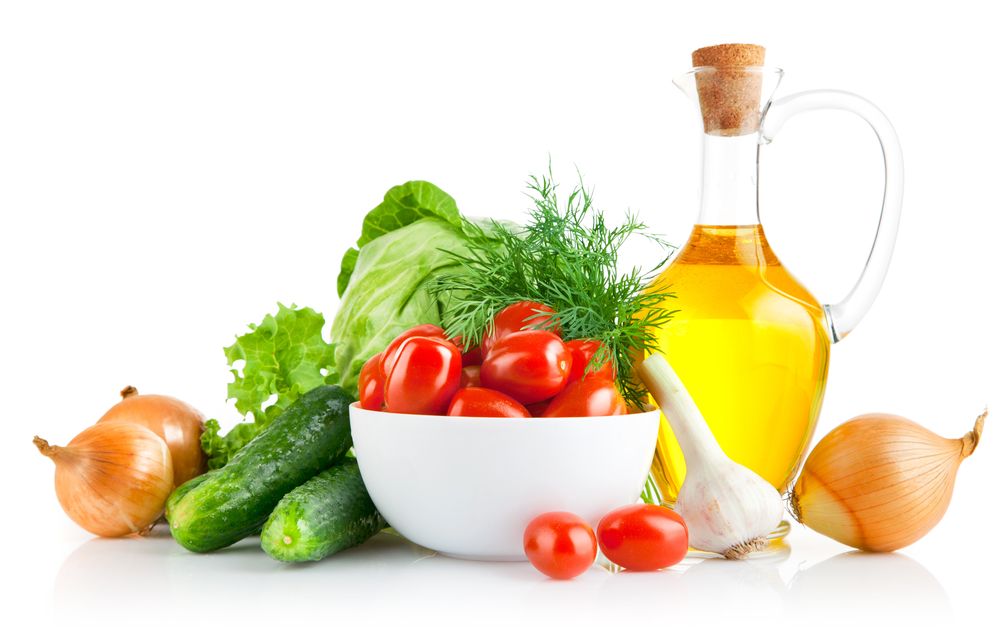Olive Oil and Veggies May Combine to Lower Blood Pressure

Putting olive oil on your veggies may bring health benefits that aren't found when the oil is drizzled on other foods, new research in mice suggests.
Olive oil's unsaturated fat reacts with certain compounds in vegetables to form a third compound that can reduce blood pressure, the researchers found.
The findings may explain why the Mediterranean diet, which is high in both olive oil and vegetables, appears to lower blood pressure and prevent heart disease, the researchers said.
When olive oil and vegetables are digested together, the conditions in the stomach provide an environment for the fatty acids to react with nitrogen compounds in the veggies, and form compounds called nitro fatty acids, which have been shown to keep blood pressure in check in animals, according to the researchers. [7 Foods Your Heart Will Hate]
The scientists used mice to investigate how nitro fatty acids may lead to reduced blood pressure, looking specifically at whether the compounds inhibited an enzyme that contributes to high blood pressure.
The animals in the study had high blood pressure, and were given olive oil omega-6 fatty acids along with sodium nitrite, to mimic components of a Mediterranean diet, for five days.
The results showed that the diet increased the level of nitro fatty acids in mice, and lowered their blood pressure.
Sign up for the Live Science daily newsletter now
Get the world’s most fascinating discoveries delivered straight to your inbox.
The evidence was strengthened by the fact that a subgroup of mice that were genetically modified, and were resistant to the inhibitory effects on the enzyme, were found to maintain their high blood pressure despite having had the same diet, according to the study.
The Mediterranean diet includes unsaturated fats found in olive oil, fish and nuts, as well as vegetables like spinach, celery and carrots that are rich in nitrogen compounds.
Despite being high in fats, which might increase the risk of heart disease, the Mediterranean diet seems to prevent heart disease, the researchers said. This may be because fats are eaten together with green leafy vegetables and result in producing nitro fatty acids, they said.
Nitro fatty acids have been detected in the blood and urine of people and animals, and have been shown to relax blood vessels and reduce inflammation, the researchers said. One of the study researchers is a founder of a company, Complexa Inc., which is developing drugs based on nitro fatty acids.
The new findings suggest that the protective effect of the Mediterranean diet on the heart comes in part from the nitro fatty acids, and through inhibiting the enzyme that boosts blood pressure, the researchers said.
The researchers detailed their study today (May 19) in the journal Proceedings of the National Academy of Sciences.
Email Bahar Gholipour. Follow us @LiveScience, Facebook & Google+. Original article on Live Science.













